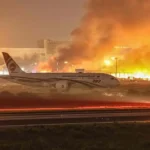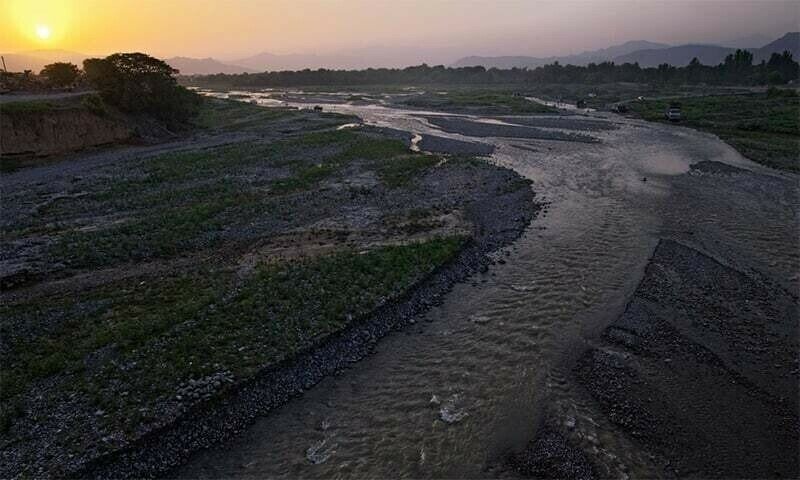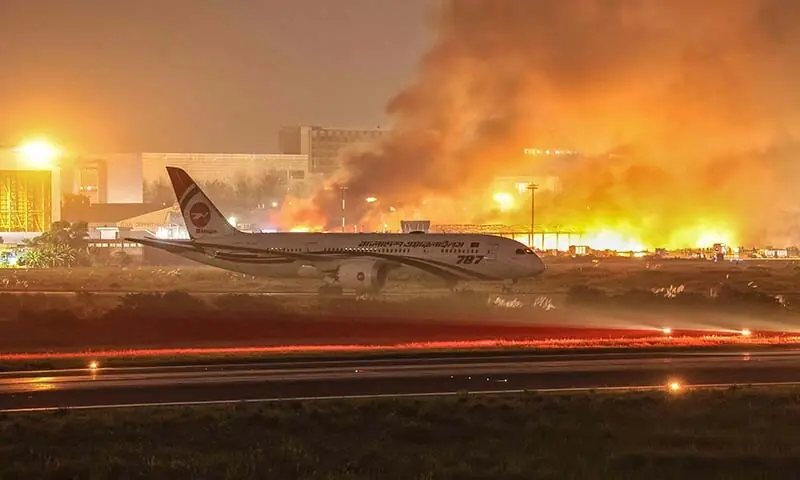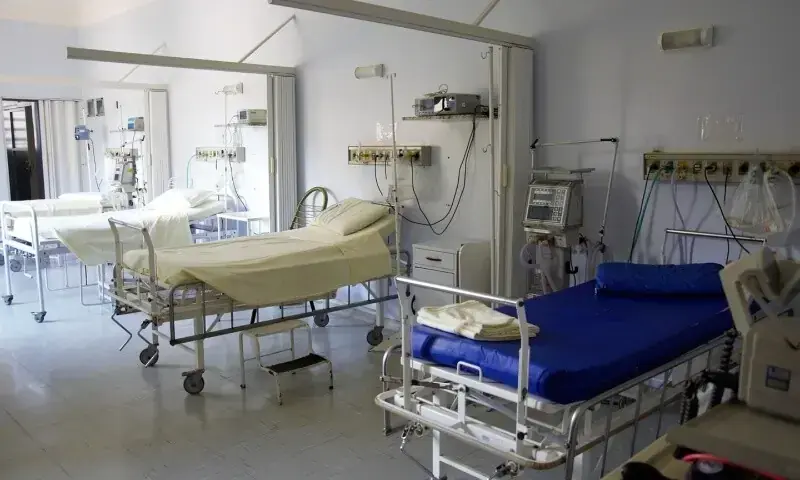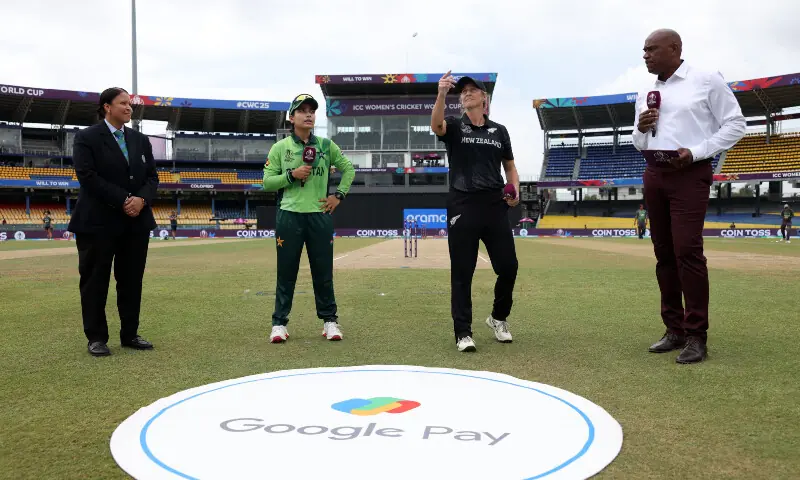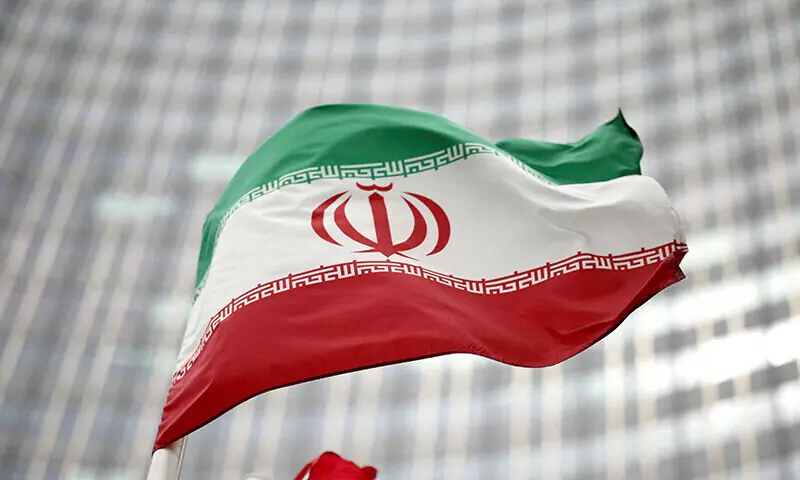Says Pakistanis not allowed to enter India under Saarc Visa Exemption Scheme; PM Shehbaz convenes National Security Committee meeting on Thursday.
In a major escalation move, India on Wednesday suspended the Indus Waters Treaty (IWT) with Pakistan with immediate effect in the wake of an attack in occupied Kashmir’s Pahalgam a day ago.
In other announcements, it said the Attari border check post was closed; Pakistanis in India under the Saarc Visa Exemption Scheme had 48 hours to leave the country, while others could return by May 1; defence personnel at the Pakistani High Commission in India had a week to leave the country and staff at the high commissions would be reduced as well.
The attack took place in Pahalgam — a tourist hotspot in the scenic Muslim-majority territory that draws thousands of visitors every summer — and at least 26 people were killed, all men, while police said another 17 people were injured, when gunmen opened fire on visitors in the popular destination, AFP reported, citing a hospital list of the dead that was verified by police. It was the region’s deadliest attack on civilians since 2000.
The Indian government had vowed that a “loud and clear” response would be delivered to the attack. Meanwhile, Pakistan had expressed concern over the incident.
What we know so far:
- India suspends Indus Waters Treaty, closes Attari border check post
- PM Shehbaz convenes meeting of National Security Committee for Thursday
- Indian defence minister vows “loud and clear” response
- All gunned down were men from across India, barring one from Nepal
- Heavy security near site as India launches search operation, claims killing 2 in ‘infiltration attempt’
- Trump offers Modi ‘full support’ as China, others condemn incident
- Modi to convene security cabinet meeting in evening
- Call for shutdown in occupied Kashmir in protest against attack
Addressing a press conference on the matter today, Foreign Secretary Vikram Misri of India’s Ministry of External Affairs (MEA) said the Cabinet Committee on Security (CCS), India’s highest decision-making body on national security, held a meeting today under Prime Minister Narendra Modi on the incident.
“In the briefing to the CCS, the cross-border linkages of the terrorist attack were brought out. It was noted that this attack came in the wake of the successful holding of the elections in the union territory and its steady progress towards economic growth and development. Recognising the seriousness of this terrorist attack, the CCS decided upon the following measures: the Indus Waters Treaty of 1960 will be held in abeyance with immediate effect until Pakistan credibly and irrevocably abjures its support for cross-border terrorism.”
The Indus Water Treaty is a water-sharing agreement between Pakistan and India, facilitated by the World Bank. It allocates the waters of the Indus River system between the two countries. It established the India-Pakistan Indus Commission, which is supposed to resolve any problems that arise.
As per Article XII subsection 4 of the Indus Waters Treaty, the provisions of the agreement will “continue in force until terminated by a duly ratified treaty concluded for that purpose between the two governments”.
India blames Pakistan for pushing fighters across the heavily militarised Line of Control (LoC) between the two countries to launch attacks on Indian forces. However, Islamabad has repeatedly denied the allegation.
Defence Minister Khawaja Asif had categorically ruled out Pakistan’s involvement in the incident in an interview earlier today.
Responding to media queries concerning the attack earlier today, Foreign Office Spokesperson Shafqat Khan in a statement said: “We are concerned at the loss of tourists’ lives in an attack in Anantnag district of Indian Illegally Occupied Jammu and Kashmir. We extend our condolences to the near ones of the deceased and wish the injured a speedy recovery,” he added.
In his other announcements, the Indian foreign secretary said movement at the Attari border check post would be closed with immediate effect. “Those who have crossed over with valid endorsements may return through that route before May 1, 2025,” he added.
The border closure is hugely symbolic — it is on the Attari-Wagah crossing that crowds gather each evening to cheer on their nation’s soldiers as they goose-step in a chest-puffing theatrical ritual symbolising the countries’ rivalry. The daily border ritual, which began in 1959, has largely endured, surviving innumerable diplomatic flare-ups and military skirmishes.
“Pakistani nationals will not be permitted to travel to India under the Saarc Visa Exemption Scheme,” the Indian foreign secretary said, adding that all such visas issued in the past were deemed cancelled and any Pakistani in India under the scheme had 48 hours to leave the country.
“The defence, military, naval and air advisers at the Pakistani High Commission in New Delhi are declared persona non grata. They have a week to leave India. India will be withdrawing its own defence, navy and air advisers from the Indian High Commission in Islamabad,” he said, adding that the posts were deemed annulled and their support staff would be withdrawn as well.
He also said the overall strength of the high commissions would be curbed to 30 from the present 55 through further reductions to be implemented by May 1.
“The CCS reviewed the overall security situation and directed all forces to maintain high vigilance. It resolved that the perpetrators of this attack will be brought to justice and their sponsors held to account.”
He said India would be “unrelenting in the pursuit of those who have committed acts of terror or conspired to make them possible”.
In his interview with Hum News today, Asif termed the incident a “false flag operation”. “We cannot ever rule this out, the possibility [that it was a false flag] will be there,” he said.
He added that allegations levelled against Pakistan were unfounded.
“There are plenty of homegrown organisations within India,” Asif said. “We condemn terrorism in all its forms, since Pakistan has been the most affected by terrorism. We are the last country that would support terrorism after the effect it has had on us.”
When asked if Pakistan would be able to provide a military response, Asif recounted when Indian aircraft conducted a bombing in Balakot in 2019.
“Everyone remembers what happened with Abhinandan,” Asif said, referring to an Indian pilot shot down and captured by Pakistani forces.
Deputy Prime Minister and Foreign Minister Ishaq Dar announced that Prime Minister Shehbaz Sharif had convened a meeting of the National Security Committee on Thursday morning to respond to the Indian actions.
Former president Arif Alvi said that “any attempt to falsely accuse Pakistan or unjustly implicate my homeland will be thwarted by the united strength of the entire nation.”
He said there should be “no doubt or ambiguity that we stand resolute with our armed forces and people to counter any aggression from the Indian government with steadfast determination. We are united, speaking with one voice and one soul in defence of peace and sovereignty.”
On today’s announcements from the Indian MEA, South Asia analyst Michael Kugelman called them “highly consequential retaliations”, adding that “in 2019, India threatened to suspend IWT but didn’t follow through.”
Former high commissioner to India Abdul Basit told Geo News that suspending the agreement violated Article 12 of the IWT, but urged people not to panic.
“It will take time for water to stop reaching the Indus and Chenab,” he said. “We are having a security committee meeting and should keep all options open.”
Basit predicted that there would be “some sort of action” taken against Pakistan in the coming days and predicted the situation in Balochistan would worsen. “We could see a Balakot-type response, or an even worse one,” he warned.
“They will do something, because they have raised such drama in Pahalgam. There are domestic issues in India: Muslims were protesting amendments to a law in India. They needed to divert attention and put Muslims on the back foot. They are framing this as a Hindu-Muslim issue,” he added.
Basit said that relations between the nuclear powers would “never be normal” until the issue of Jammu and Kashmir was resolved.
He additionally warned that Afghanistan’s exports would be affected, since its goods were transported to India through the now-closed Wagah Border.
Speaking to Geo News, former federal minister and Senator Sherry Rehman said that it was surprising that India suspended the agreement, given that it was followed even during wars between both nations.
“Now they have suspended it of their own accord. This is an anti-humanitarian action — they are weaponising water,” she said. “This looks like a knee-jerk reaction,” she added. “To date, they are unable to prove the identity of the attackers. They claim to have examined the bodies of the attackers and cannot prove anything.”
She said the incident was a “false flag operation”, although she said she “did not want to play the blame game”.
PPP MNA Sharmila Faruqui said India could not unilaterally suspend the IWT since it was a binding international agreement brokered by the World Bank.
“It has withstood wars and tensions. Water must not be weaponised. Such actions violate Articles IX & XII and undermine humanitarian principles.”
Veteran politician Mushahid Hussain said India’s suspension of the treaty over “cross-border linkages” with terrorism was premeditated. “They were looking for a pretext to suspend it,” he told ARY News.
“It is a violation of international law, the IWT and the UN charter.”
Calling Modi a “bully”, he said he was not afraid of any military action by India. “They are setting up for a long-haul campaign to malign Pakistan,” he said. “We need a proactive, political-diplomatic response. We have a platform at the UNSC and we need to take India to court, because this is a violation of international law.
“We also need to publish a factsheet showing India’s pattern of false flag operations, how they fail to provide evidence, facts or proof,” he added. “It is as if the Indian media is on autopilot — if there’s an attack, blame Pakistan.”
Hussain slammed Indian media personalities for being jingoistic, calling them “warmongers”. “Pakistan should call a UNSC meeting immediately,” he stated. “The security council’s purpose is to counter any threats to peace and security. Water is now being weaponised; this is water aggression.”
Former federal minister Fawad Chaudhry said suspending the IWT violated international law and the treaty itself.
“This childish decision will affect only [the] poor farmers of Punjab and Sindh,” he wrote in a post on X.
Former federal minister Shireen Mazari said suspending the IWT was another “tantrum” by India.
“India has in any case been violating [the] IWT ad nauseum and Pakistan had earlier already downgraded diplomatic relations, so no surprises!”
She called India’s behaviour “predictable”, stating that targeting Pakistan without evidence was an “easy and jingoistic ‘solution’”.
India vows ‘loud and clear’ response
India’s Prime Minister Narendra Modi had decried the “heinous act” in the summer retreat of Pahalgam, pledging the attackers “will be brought to justice”.
“Those responsible and behind such an act will very soon hear our response, loud and clear,” Indian Defence Minister Rajnath Singh said in a speech in New Delhi today.
“We won’t just reach those people who carried out the attack. We will also reach out to those who planned this from behind the scenes on our land.” Singh did not identify those he believes are responsible for the killings, but said that “India’s government will take every step that may be necessary and appropriate.”
The killings came a day after Modi met in New Delhi with US Vice President JD Vance, who is on a four-day tour of India with his wife and children.
All the dead were listed as residents of India — many from across the country — except one living in Nepal. The dead included a navy officer, The Hindu reported.
Some of the victims were from distant regions of India, which included Tamil Nadu, Maharashtra and Karnataka.
Many of their bodies were brought to Srinagar today by a fleet of ambulances, as military helicopters soared overhead, searching the forested mountain flanks for signs of the attackers.
A hitherto unknown group, named by several Indian outlets as ‘The Resistance Front’, is said to have claimed responsibility for the attack.
A similar incident took place ahead of former US president Bill Clinton’s visit to Delhi in the year 2000, when 36 Indians were killed, but there has been considerable dispute over who staged it.
At the time, India had blamed Pakistan-based militants, but Indian and Kashmiri observers decried it as an alleged plot by the Indian army.
Following the attack, several Indian media outlets and social media accounts began linking the attack to Pakistan, without any evidence to substantiate the claim.
While pundits on Indian TV channels ratcheted up their customary anti-Pakistan rhetoric, there was no official finger-pointing towards Islamabad in the hours immediately following the attack.
According to The Statesman, local police only reposted the X posts of the president, the prime minister, the home minister, and the local governor.
Senator Sherry Rehman, while condemning the “shocking terror attack”, said: “Unfortunately, the reflexive finger-pointing already at play against Pakistan has become the boilerplate response for a New Delhi that is unable to contain its own spectacular failures amidst a fundamentalist meltdown.”
“Voices of reason that urge strategic stability, responsible engagement across the LoC (Line of Control) are ignored, even ridiculed,” the former federal minister said.
Rehman stressed that “stridency-on-steroids is not a foreign policy”.
Former federal minister Khawaja Saad Rafique condemned Indian media’s attempt to blame Pakistan for the attack “without any evidence”, calling it “highly irresponsible, absurd and baseless”.
Former foreign minister Khurram Dastgir Khan had expressed his concern over the loss of life during the attack.
“Condolences to families and near ones of the deceased and wish the injured a speedy recovery,” he said in a post on X.
India hunts gunmen
AFP journalists near the site of the attack in Pahalgam reported a heavy deployment of security forces.
“The search operation is currently in progress, with all efforts focused on bringing the attackers to justice,” the Indian army said in a statement.
Hundreds of security forces rushed to the Pahalgam area soon after the attack and a massive combing operation was launched in the forests there, two security sources told Reuters.
About 100 people suspected of having been resistance sympathisers in the past were called to police stations and questioned, they added.
Following the attack, the Indian army claimed to have killed two fighters along with foiling an infiltration attempt in the Uri sector in occupied Kashmir’s north, The Indian Express said.
Modi held a meeting with National Security Adviser Ajit Doval and External Affairs Minister S. Jaishankar in the morning after he cut short his state visit to Saudi Arabia over the attack, The Indian Express reported.
A special security cabinet meeting had been called for 6pm (5:30pm PKT), a defence ministry official said.
India’s Home Minister Amit Shah also rushed to the region to coordinate with authorities and met the survivors, the outlet added.
Finance Minister Nirmala Sitharaman was also cutting short her visit to the United States and Peru “to be with our people in this difficult and tragic time”, her ministry said.
Pahalgam lies 90 kilometres by road from the key city of Srinagar. It sits on a scenic meadow that has been used as a backdrop in Indian movies, most notably Bobby.
It also falls on the route of the annual Amarnath Yatra — a Hindu pilgrimage to a cave shrine dedicated to Lord Shiva — which makes it one of the most protected regions of India-held Jammu and Kashmir.
The brazen attack in the highly protected zone has raised eyebrows across the region.
‘Men targeted’
A tour guide in Pahalgam told AFP he reached the scene after hearing gunfire and had transported some of the wounded away on horseback.
Waheed, who gave only one name, said he saw several men lying dead on the ground, while a witness who requested anonymity said the attackers were “clearly sparing women”.
One woman survivor described how men in uniform emerged from forests at a meadow where tourists were enjoying the peace of nature, The Indian Express newspaper reported.
Survivors said they had assumed they were policemen.
“They were there at least for 20 minutes, undeterred, moving around and opening fire”, the newspaper quoted the survivor as saying.
“The militants, I can’t say how many, came out of the forest near an open small meadow and started firing,” a witness who asked not to be identified told AFP.
“They were clearly sparing women and kept shooting at men, sometimes a single shot and sometimes many bullets. It was like a storm,” said the man, who cares for horses that are popular with tourists in the area.
The witness said dozens of people fled as the gunmen opened fire. “They all started running around in panic,” he added.
Medics at a hospital in Anantnag said they had received some of the wounded, including those with gunshot wounds.
“The firing happened in front of us,” one witness told broadcaster India Today, without giving his name, according to Reuters.
“We thought someone was setting off firecrackers, but when we heard other people [screaming], we quickly got out of there … saved our lives and ran.”
“For four kilometres, we did not stop … I am shaking,” another witness was quoted as telling India Today.
The attack occurred in an off-the-road meadow and two or three gunmen were involved, the Indian Express newspaper reported, citing an unidentified senior police officer.
Witnesses told The Wire that the meadow, which is not serviced by road and can be reached on foot, horseback or by chopper, was buzzing with tourists on Tuesday as the weather had improved after many days of rain and thunderstorms.
Shutdown call
Over a dozen local organisations called for a shutdown in occupied Kashmir to protest against the attack on tourists, whose rising numbers are said to have helped the local economy.
Many schools also suspended classes for the day in protest.
Airlines were operating extra flights from Srinagar as visitors were rushing out of the region, officials said.
The main highway connecting Srinagar to the rest of the country had been damaged by heavy rain and was shut for repairs, pushing up demand for flights, they said.
Television visuals showed tourists carrying their bags to taxis and filing out of a hotel in Srinagar.
“How can we continue our trip in such a situation?” Sameer Bhardwaj, a tourist from New Delhi, told ANI. “We need to prioritise our safety. We can only travel if our minds are relaxed but everyone is tense here. So, we cannot continue to travel.”
Aviation Minister Rammohan Naidu Kinjarapu’s office said four special flights from Srinagar — two to Delhi and two to Mumbai — have been arranged, with additional flights kept on standby to cater to further evacuation needs.
“Naidu also held an urgent meeting with all airline operators and … directed [them] to maintain regular fare levels, ensuring that no passenger is burdened during this sensitive time,” it said in a statement.
Trump offers Modi ‘full support’
In Washington, the White House said US President Donald Trump had been briefed on what a White House spokesperson described as a “brutal terrorist attack”.
India’s foreign ministry subsequently said Trump called Modi and “expressed full support to India to bring to justice the perpetrators of this heinous attack”.
In his message yesterday as well, Trump said India had the “full support” of the US. “The United States stands strong with India against terrorism.”
Vance offered condolences in a social media post, calling it a “horrific attack”.
In New York, a spokesman for UN Secretary General Antonio Guterres said he “strongly condemns” the attack.
China’s foreign ministry offered “sincere sympathies”.
“We mourn the victims and extend our sincere sympathies to the families of the victims and the injured,” foreign ministry spokesman Guo Jiakun said, adding China “strongly condemns this attack”.
EU chief Ursula von der Leyen pledged: “Europe will stand with you.”
Among other foreign leaders condemning the attack were Sri Lanka, the United Arab Emirates, Iran, and New Zealand.
Jammu and Kashmir Chief Minister Omar Abdullah said that “the attack is much larger than anything we’ve seen directed at civilians in recent years”, with the death toll still uncertain.
“This attack on our visitors is an abomination,” he added in a statement.
“The perpetrators of this attack are animals, inhuman and worthy of contempt.”
Congress leader Rahul Gandhi, who is also Leader of the Opposition in the Lok Sabha, called the attack “extremely condemnable and heartbreaking,” while urging the government to move beyond what he termed “hollow claims” of peace in occupied Kashmir.
“The whole country is united against terrorism,” Gandhi said.
Holiday destination
India has an estimated 500,000 soldiers permanently deployed in the territory, whose limited autonomy Modi’s government revoked in 2019.
“Their evil agenda will never succeed. Our resolve to fight terrorism is unshakable and it will get even stronger,” Modi said in a statement.
In recent years, the authorities have promoted the mountainous region as a holiday destination, both for winter skiing and to escape the sweltering summer heat elsewhere in India.
In 2023, India hosted a G20 tourism meeting in Srinagar under tight security in a bid to show that what officials call “normalcy and peace” were returning after a massive crackdown.
A string of resorts are being developed, including some close to the LoC.

